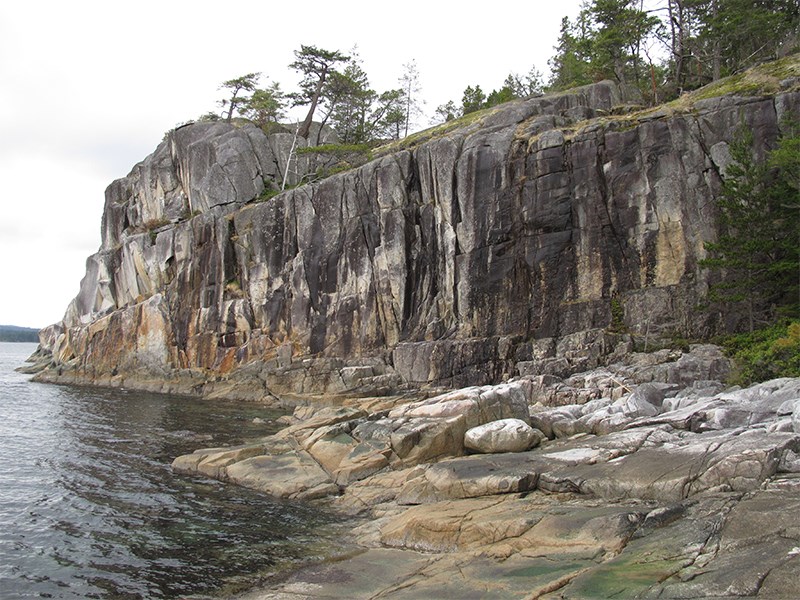Stillwater land-use issues figured prominently last week at Powell River Regional District meetings.
Nanaimo-based forestry company Island Timberlands owns District Lot 3040, the 48-hectare parcel of land that includes Stillwater Bluffs and other industrial lands around Stillwater Bay.
Conservationists and outdoor recreation advocates have long pushed for the purchase of the land to protect the area. Stillwater Bluffs is listed as one of the regional district’s top five sites for protection in its 2010 parks and greenspace plan.
Stillwater School Road resident Abby McLennan appeared before the regional district planning committee Tuesday, December 13, asking for support for improved recreational access to the beach and bluffs.
McLennan told the committee the current proposed beach access in Island Timberlands’ preliminary approved subdivision plan would not be usable to residents, but with some course alterations it could be.
“It’s not usable in the foreseeable future because it goes right into the heart of their industrial area,” McLennan told the committee.
She presented a proposed route to the committee that would create access away from the industrial area and bring hikers and climbers to the water near the boundary of district lots 3040 and 1631.
McLennan said the proposed route from Loubert Road is supported by the neighbours as it would ease the current conflicts of recreational users trespassing through yards to gain access.
Regional district Electoral Area C director Colin Palmer said at the meeting that he met with McLennan prior to her presentation.
“The whole thing makes a lot of sense,” said Palmer.
He added that with the subdivision’s preliminary approval, the local government has one year to make suggestions and that period had yet to lapse.
The planning committee approved a motion asking the regional district board to send BC Ministry of Transportation and Infrastructure a letter with a detailed explanation of the proposed changes and ask them to consider McLennan’s proposal.
Later that week, at the regional district’s committee of the whole meeting on Thursday, December 15, Friends of Stillwater Bluffs Association appeared as a delegation to announce it had formed a non-profit society able to fundraise for parkland acquisition and was looking to further pursue securing the bluffs as either a protected area or a regional park.
Association spokesperson Janet May told the committee the goal of the organization is “to protect the ecological integrity and to secure low impact public pedestrian access to the bluffs.” She added the organization would also like the regional district board to accept its 2015 parkland acquisition strategy as a policy directive.
“We feel that adopting this parkland acquisition strategy would be a positive foundational step in achieving our goals and the goals of others,” said May. “We’re here because we feel there is an urgency to actually building our parkland and greenspace inventory.”
Regional district staff reported to the committee that the strategy was discussed in fall strategic planning sessions, but it had not yet been assigned
any timelines.
Electoral Area D director Sandy McCormick said she thought May’s presentation made a strong case for reactivating the regional district’s parks and greenspace implementation advisory committee and that group could help push the issue of parkland acquisition forward.
Municipal director Russell Brewer said with the release of the Expanded Regional Recreation Initiative Study last week he would like to see parkland acquisition included in a broader discussion.
Regional parks is a regional service that city and rural residents pay into, unlike Powell River Recreation Complex, said Brewer.
“If we’re going to talk about park acquisition, I don’t want to have that conversation independent of talking about the recreation complex, one of the elephants in the room,” said Brewer. “They are not independent conversations.”



